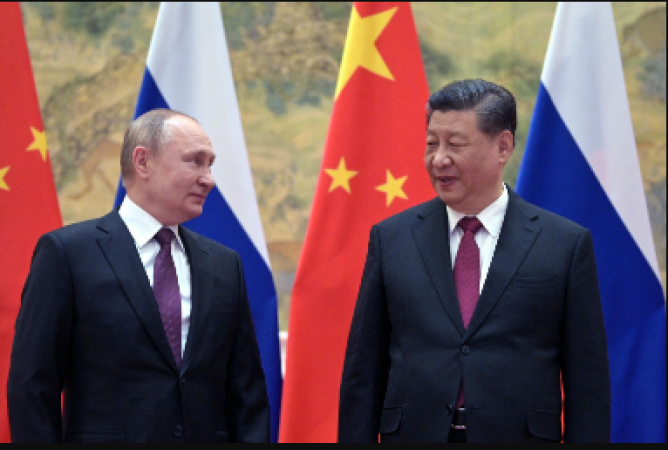
Beijing: The highest-ranking Chinese diplomat to visit the war-torn nation since Moscow's invasion last year will travel to Ukraine, Russia, and other European countries starting on Monday, Beijing announced on Friday.
Beijing has recently sought to establish itself as a mediator with a key role in resolving the world's crises, from the Middle East to the Ukraine. China has come under fire for holding out on denouncing Moscow for the invasion even though it claims to be a neutral party in the conflict in the Ukraine.
More than a year into the conflict, Chinese President Xi Jinping recently spoke on the phone with his Ukrainian counterpart, Volodymyr Zelensky.
Li Hui, who served as China's ambassador to Russia from 2009 to 2019, was subsequently announced by Beijing to head a delegation to Ukraine.
Li's trip to the Ukraine, Poland, France, Germany, and Russia, according to China's foreign ministry spokesman Wang Wenbin, was intended to "communicate with all parties on the political settlement of the Ukrainian crisis."
China's "commitment to promoting peace and talks," Wang said, was demonstrated by Li's trip. "It amply demonstrates that China firmly supports peace.
He continued, "China is willing to continue to play a constructive role in fostering greater international agreement on the opening of peace talks, the implementation of a cease-fire, and the cessation of hostilities."
Also Read: Indonesia: ASEAN's credibility is at risk as the Myanmar crisis gets worse
When asked about Li's visit, Qin Gang, the foreign minister of China who is currently in Norway, said: "We all worry about the situation and we call for peace and a political solution, which China stands for and has been calling for since day one of the outbreak of the conflict."
However, Li's selection as the Chinese government's special representative for Eurasian Affairs has drawn criticism. President Vladimir Putin presented him with the Order of Friendship medal just before he departed for Moscow in his capacity as ambassador.
Zelensky's phone call with Xi, which the Ukrainian president called "long and meaningful," came after Beijing published a 12-point position paper on Ukraine in February, which urged communication and respect for each nation's territorial sovereignty.
Also Read: Man jailed in the UK for praising the murder of a French teacher
The document was derided by Western nations for its imprecise language, but it led Zelensky to declare that he would be open to speaking with Xi.
The first thing it said was that "the sovereignty, independence, and territorial integrity of all countries must be effectively upheld."
But China has consistently shied away from explaining how that relates to the particulars of the conflict in Ukraine.